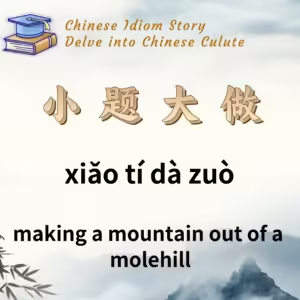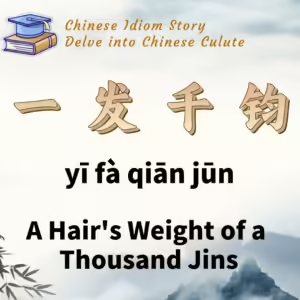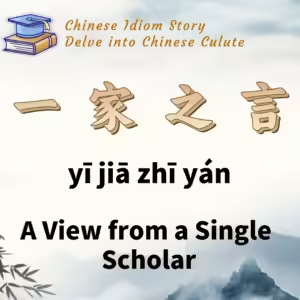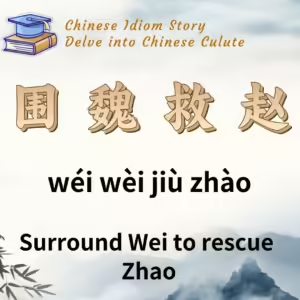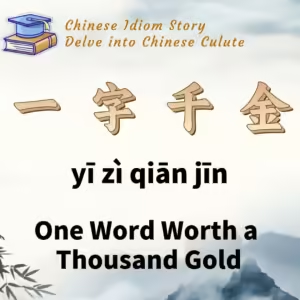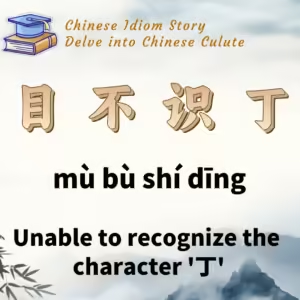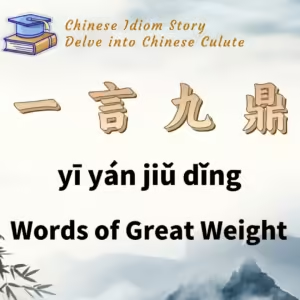
Chinese Idiom: 一言九鼎 (Yi Yan Jiu Ding)
English Translation: Words of Great Weight
pīn yīn: yī yán jiǔ dǐng
Idiom Meaning: This idiom describes someone whose words carry significant weight and influence, with every sentence having a major impact. “一言” means a single word in Chinese, while “九鼎” refers to a precious artifact symbolizing great value.
Historical Source: Records of the Grand Historian (Shiji), Biography of Pingyuan Jun.
Idiom Story: In 260 BCE, the Qin army decisively defeated the Zhao forces at Changping (present-day northwest Gaoping, Shanxi). Subsequently, Qin General Bai Qi advanced towards Handan, the Zhao capital (in present-day Hebei). In 259 BCE, the Qin army besieged Handan, placing Zhao in dire peril. The Zhao king, Xiaocheng, dispatched Pingyuan Jun Zhao Sheng with twenty retainers, including Mao Sui, to the Chu state to seek military assistance.
Upon arrival in Chu, Pingyuan Jun negotiated with King Kaolie of Chu from morning until noon, yet they reached no agreement. At this point, Mao Sui drew his sword, stepped forward boldly, and said to Pingyuan Jun, “The matter of uniting Chu and Zhao against Qin can be settled in a few words. Why hasn’t it been resolved after so long?” Annoyed by Mao Sui’s interruption, King Kaolie, who already looked down on Zhao, rebuked him, saying, “Step back. I am talking to your lord. Who are you to speak?”
Mao Sui, holding his sword, stepped forward and threatened, “The reason you dare to be so rude to me is because you believe you have the numbers in your favor. But within this ten-step radius, you do not. Your life is in my hands. I have heard that King Tang of Shang, with a fief of seventy li, overthrew Jie of Xia, and King Wen of Zhou, with a fief of a hundred li, overthrew Zhou of Yin. They succeeded not by numbers but by virtue and prestige. Now, Chu has five thousand li of land and a million soldiers, making it the most qualified to be a hegemon. Yet, in recent years, you have been repeatedly defeated by Bai Qi of Qin, losing strategic towns and your capital. This humiliation should be a lasting shame. Doesn’t the King realize that uniting against Qin is necessary not just for Zhao but also for Chu?” Confronted with Mao Sui’s determined words and actions, King Kaolie agreed to send troops to aid Zhao.
Upon returning to Zhao, Pingyuan Jun remarked, “Mister Mao’s words in Chu have made Zhao’s prestige as valuable as the Nine Tripod Cauldrons.”
The Nine Tripod Cauldrons were legendary artifacts cast by Yu the Great, symbolizing the nine provinces and representing the most treasured items in the Xia, Shang, and Zhou dynasties. The Great Lü Bell was a large bell placed in the ancestral temple of the Zhou dynasty. Both were the most precious artifacts of their time.
This statement means that Mao Sui’s speech before the King of Chu elevated Zhao’s prestige above the most valuable treasures. Based on this story, the idiom “words of great weight” (一言九鼎) was derived.

